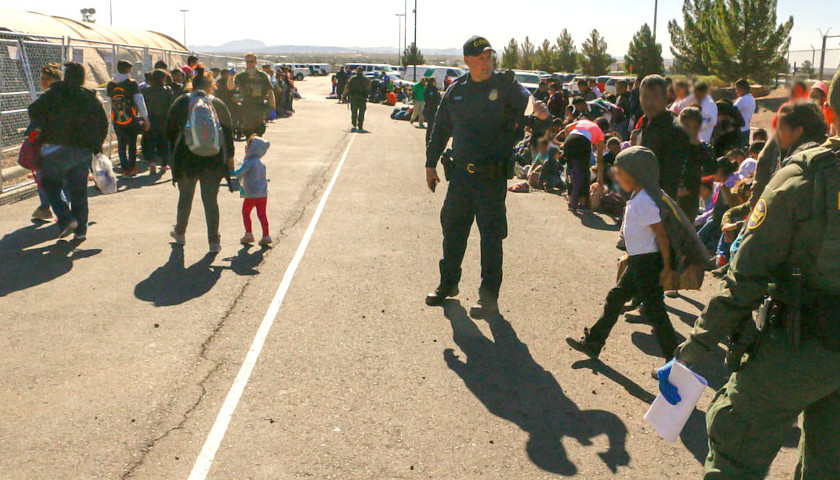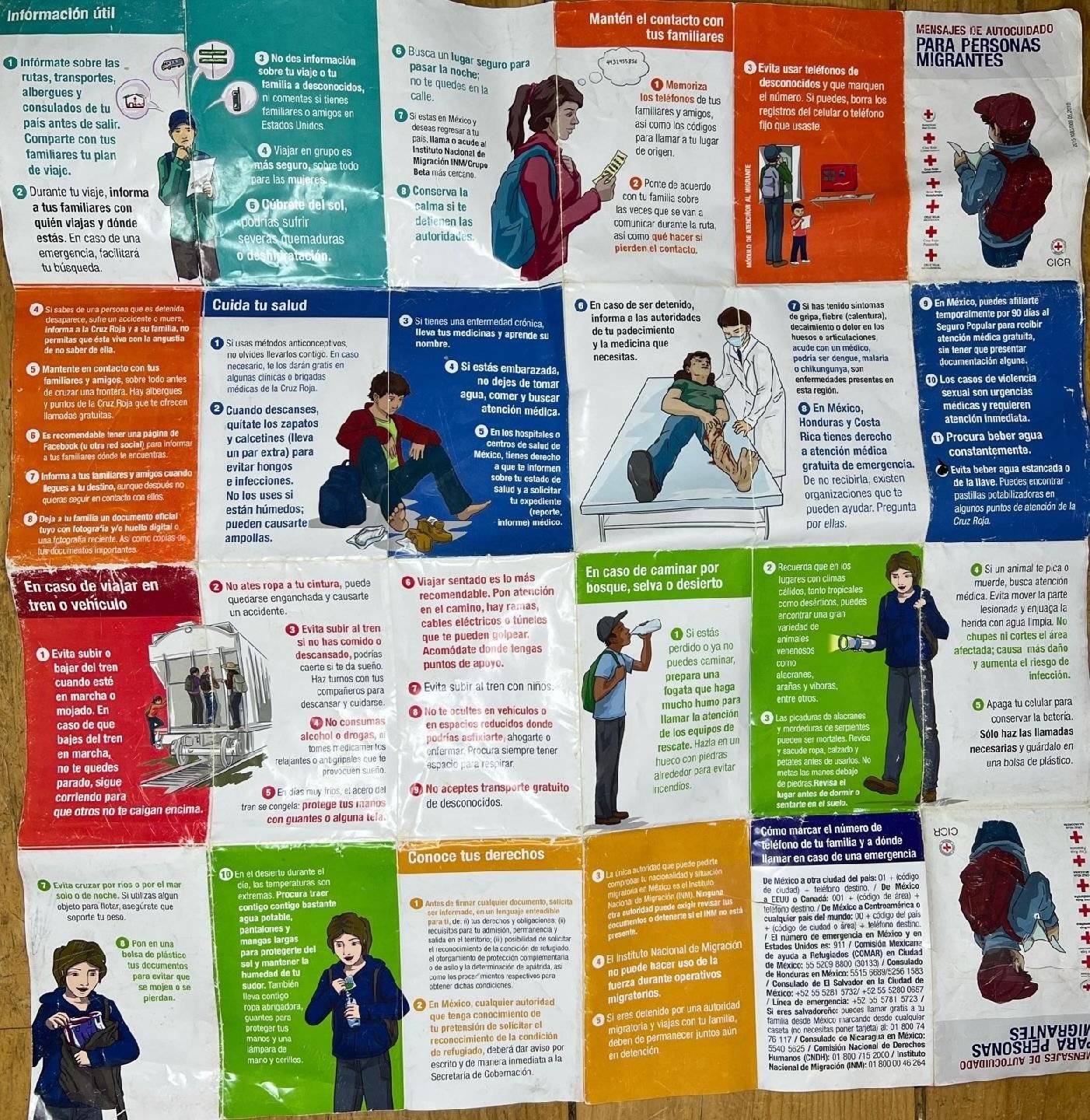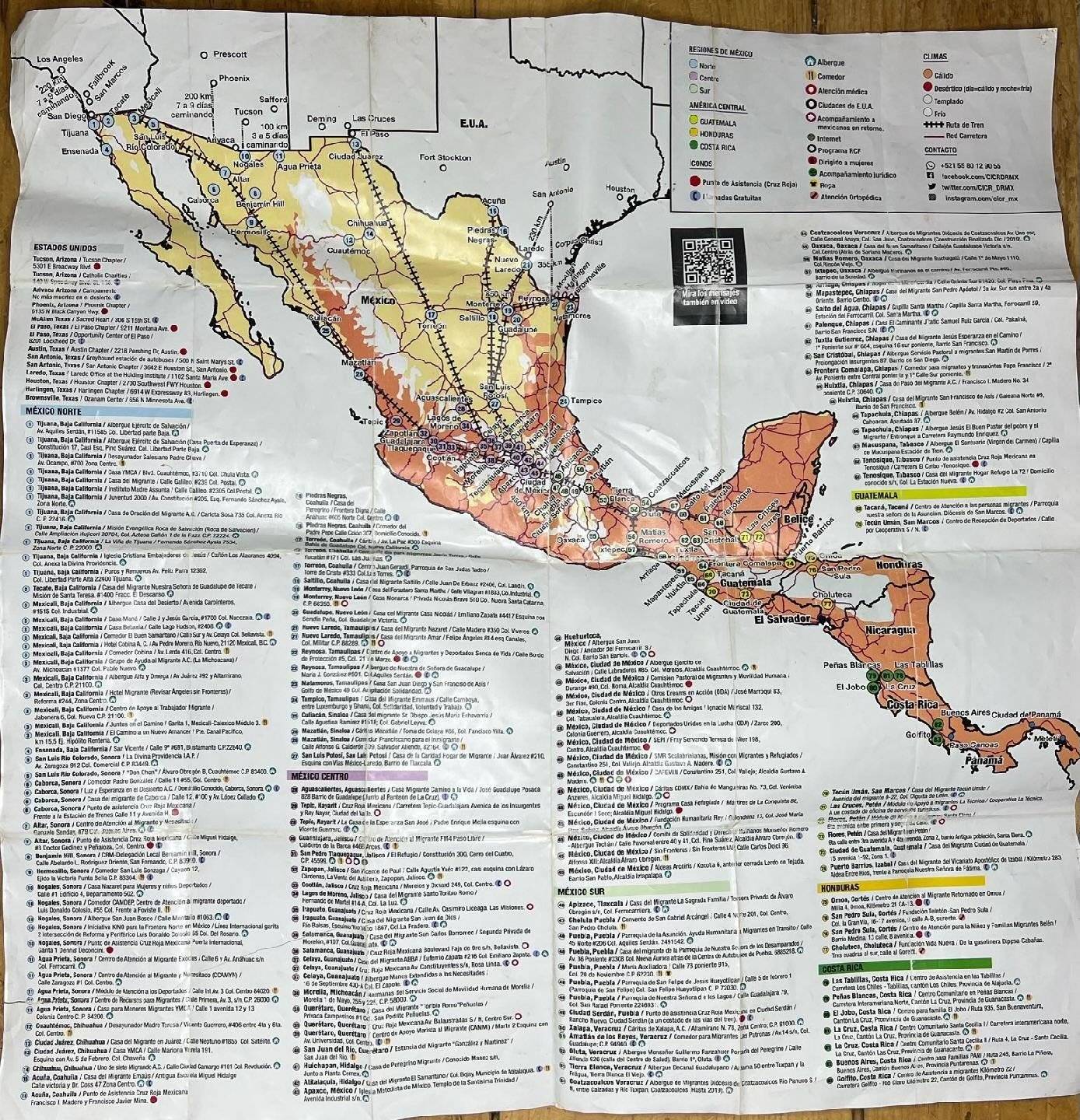by Jennie Taer
The American Red Cross has maps and guides for migrants to make the dangerous journeys to the U.S.-Mexico border, according to documents exclusively obtained by the Daily Caller News Foundation.
The map, which is part of a packet stamped with the International Committee of the Red Cross and American Red Cross logos, shows a list of resources, including hotels, clinics and shelters where migrants can get support in Mexico and Central America. The maps include clearly defined lines leading to cities along the U.S. border. The organization also has a guide to “self care” along the journey, which includes tips on how to survive the desert and disease, how to safely jump on trains, and how to obtain contraceptives.
The U.S. government tasks the American Red Cross, whose logo is on the guide for migrants south of the border, with allocating millions of dollars in taxpayer funds to support illegal migrants released into the country.
 The American Red Cross sits on the board of the Federal Emergency Management Agency’s (FEMA) Food and Shelter Program and is tasked with allocating funding to nongovernmental groups supporting the illegal migrants. The FEMA program received $350 million from the Department of Homeland Security (DHS) in February; the American Red Cross is tasked, along with other NGOs with allocating some of those funds to support migrants after they’ve crossed the southern border and are processed with a court date.
The American Red Cross sits on the board of the Federal Emergency Management Agency’s (FEMA) Food and Shelter Program and is tasked with allocating funding to nongovernmental groups supporting the illegal migrants. The FEMA program received $350 million from the Department of Homeland Security (DHS) in February; the American Red Cross is tasked, along with other NGOs with allocating some of those funds to support migrants after they’ve crossed the southern border and are processed with a court date.
The organization is not only facilitating help for illegal migrants in the U.S., but appears to be helping migrants make their journeys far south of the border. U.S. Customs and Border Protection (CBP) has recorded a record surge in illegal migration at the southern border, where federal authorities encountered more than 2.3 million migrants in fiscal year 2022 and more than 870,000 between October and January.
The map the organization provides shows routes to popular border cities in the U.S., which includes El Paso, Texas; Nogales, Arizona; and McAllen, Texas.
The guides also appear to acknowledge that the journey to the U.S. for migrants is dangerous.
Many migrants from countries beyond Central America travel through Panama’s Darien Gap, where Panamanian authorities say there have been 50 known migrant deaths in 2022, according to the Los Angeles Times. Between May and September 2021, there were 180 known cases of rape in the Darien Gap, according to The Wall Street Journal.
The Red Cross’ guide provides migrants with the tools to encounter deadly and treacherous situations, including providing contraceptives.
“If you use contraceptives methods, don’t forget to bring them with you. In necessary cases, some Red Cross’ clinics and medical brigades will give them to you for free,” the self care document states.
The document also provides guidance on navigating the desert and jumping on top of cargo trains, which are known as “La Bestia,” or “the beast,” that transits north through Mexico.
“In the desert during the day, temperatures are extreme. Seek to bring with you lots of potable water, pants and long sleeves to protect you from the sun and maintain the sweat humidity. Also take with you warm clothes, gloves to protect your hands and a flashlight and matches,” the guide states.
“Traveling seated (on trains) is the most recommended. Be careful on your trip, there are branches, electric cables, tunnels that can hit you. Accommodate yourself where you have supporting points,” it adds.
The United Nations (UN) recorded 7,000 migrant deaths between 2014 and 2022 in the Americas, 4,694 of whom were heading to the U.S. There were also 4,000 migrant deaths recorded in the U.S. during that same time period.
The International Committee of the Red Cross did not dispute the documents when reached for comment.
“Every day around the world, people make the difficult decision to leave their homes and their countries in pursuit of a safer place to live and hope for a better future. Families migrate for different reasons, such as conflict, violence, natural disasters, or other reasons. The International Committee of the Red Cross, as a part of the International Red Cross and Red Crescent Movement, does not prevent nor does it encourage migration. We aim to help prevent and mitigate the humanitarian consequences that migration can bring – including separation and loss of family contacts, disappearances, serious medical issues and even death,” an International Committee of the Red Cross spokesperson told the DCNF.
“Our approach to migrants is strictly humanitarian. We provide information about ways to reduce risk and where to find lifesaving assistance in Mexico and Central America. It is essential to prevent the loss of lives and to promote a humanitarian approach. Addressing the needs of this vulnerable population is a shared responsibility, of the authorities in the countries of origin, transit and destination, and of the international community,” the spokesperson added.
– – –
Jennie Taer is a reporter at Daily Caller News Foundation.







